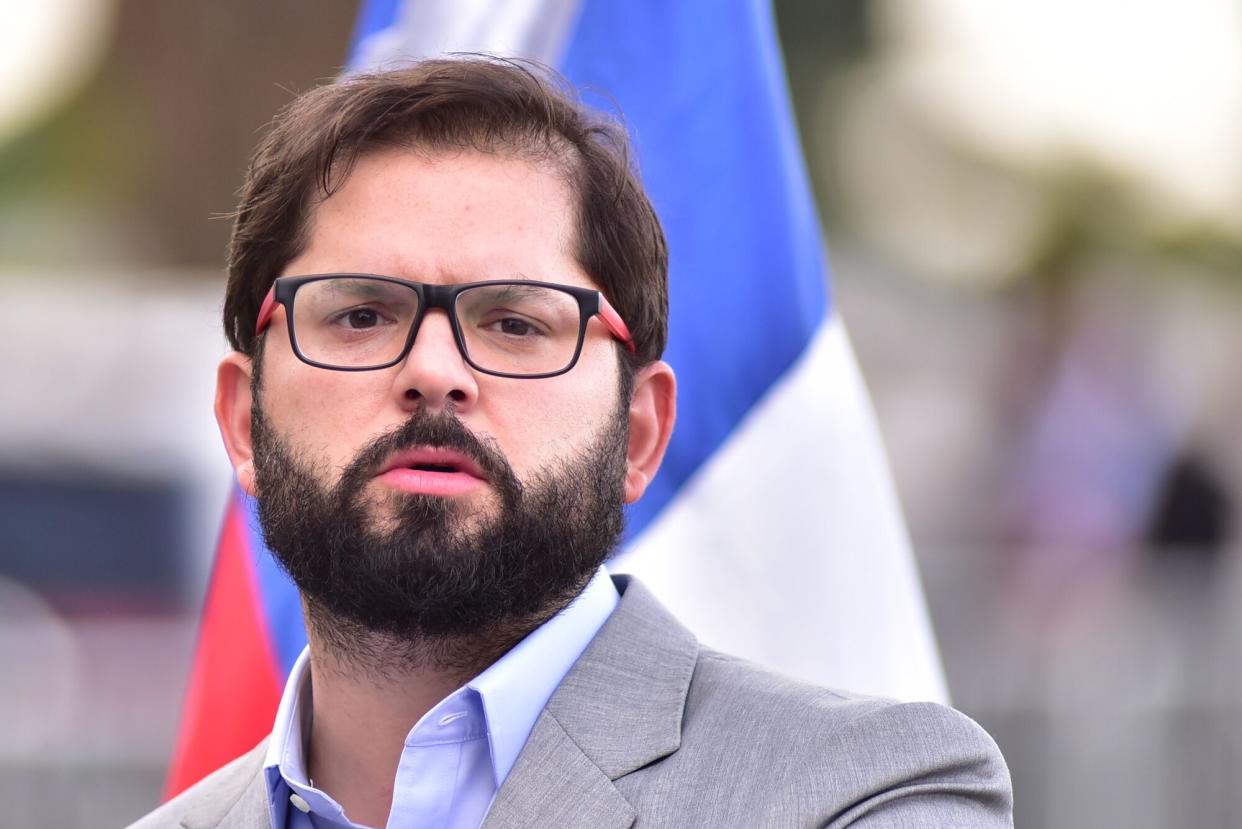Chile’s Government Sets Pension Reform Bill on Fast Track

(Bloomberg) -- Chile’s government decided to fast track its pension reform as President Gabriel Boric pressures lawmakers to vote on the legislation that’s emerged as a focal point to his leftist administration.
Most Read from Bloomberg
China Attempts to End Property Crisis With Broad Rescue Package
With a BlackRock CEO, $9 Trillion Vanguard Braces for Turbulence
US Inflation Data Was Accidentally Released 30 Minutes Early
Putin and Xi Vow to Step Up Fight to Counter US ‘Containment’
Jamie Dimon Sees ‘Lot of Inflationary Forces in Front of Us’
The executive branch applied “utmost urgency” to the proposal, meaning in theory that the Senate must now vote on it within 15 days. Still, in practice, the opposition will likely push back against that time-frame.
The government’s move comes days after the Senate’s Labor Committee, which is currently discussing the proposal, agreed to first discuss six aspects of the reform in sessions that were seen extending to July. The bill has been languishing in the Senate since the lower house approved it in January.
“I’ve spoken with many people within the government who don’t agree with this willingness to apply urgency when we have an agreement to vote after reviewing a series of topics,” opposition Senator Luciano Cruz-Coke said at the Senate’s Labor Committee on Wednesday.
Boric is ramping up calls to vote on the overhaul ahead of his closely-watched State of the Nation address on June 1. More than half way into his term, the former student protest leader is struggling to approve marquee bills to raise revenues and boost retirement payments that often fall below the poverty line.
Read more: Chile’s Finance Minister Signals Tougher Stance in Pension Talks
The government will sharpen its negotiation strategy on pension reform and will insist on more cooperation from the opposition, Finance Minister Mario Marcel said in an interview last month. In January, the lower house backed the base text of the proposal but then rejected several key articles, most notably one on a proposed new employer pay-in.
The legislation seeks to address low pensions that were one of the drivers behind a wave of social unrest starting in late 2019. The government wants to shift away from the current system of individual savings accounts managed by private funds toward a more mixed set-up with a solidarity component.
Most Read from Bloomberg Businessweek
How the ‘Harvard of Trading’ Ruined Thousands of Young People’s Lives
Milei Targets Labor Law That’s Set to Hand Banker $10 Million Severance
Walgreens and CVS Are Trying to Fix America’s Flailing Pharmacies
©2024 Bloomberg L.P.


